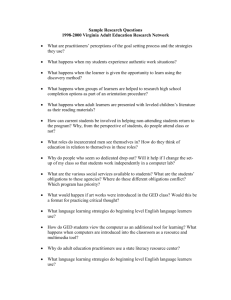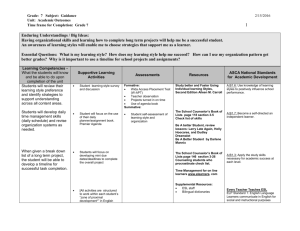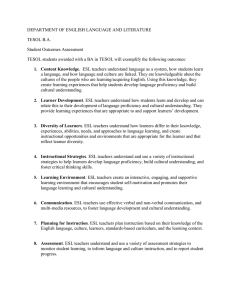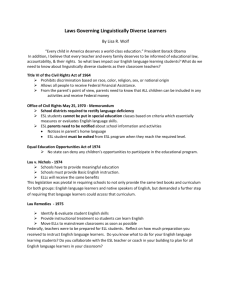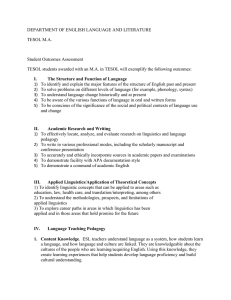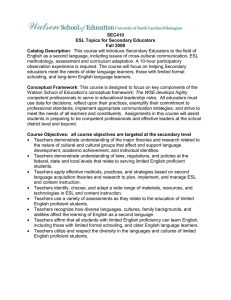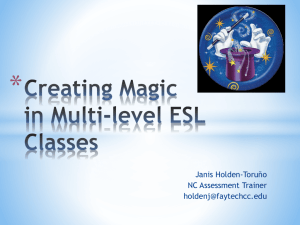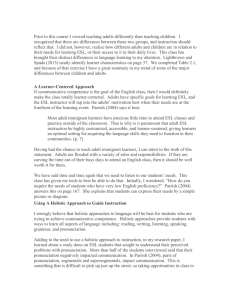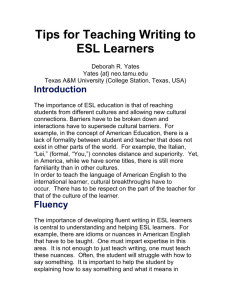6 Principles of Second Language Learning
advertisement
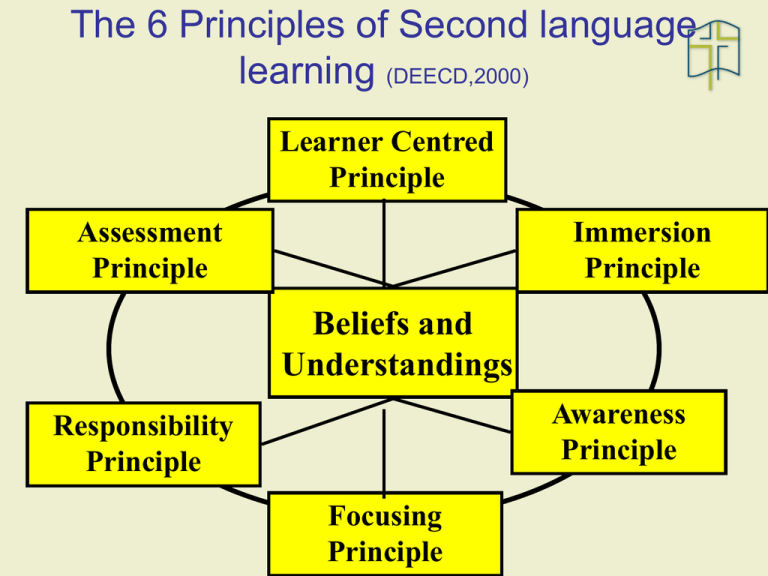
The 6 Principles of Second language learning (DEECD,2000) Learner Centred Principle Assessment Principle Immersion Principle Beliefs and Understandings Awareness Principle Responsibility Principle Focusing Principle Principal 1-The Learner Centred Principle ESL learners learn best when the language input is relevant to their individual needs, interests and understandings. Teachers need to: • recognise that students bring a first language to the learning of a new language, and this provides the basis for their learning of the second language • help learners make links between what they already know and new concepts and knowledge • plan for the sharing of knowledge and experience of all students • choose resources that are culturally sensitive and accessible • create an atmosphere that is receptive to, and tolerant of, cultural similarities and differences Principal 2-The Immersion Principle ESL learners learn best when they are provided with opportunities to communicate in authentic school and social contexts. Teachers need to: • encourage all students to participate actively and to take risks in language use • provide a wide range of learning activities using different groupings, situations and teaching strategies • provide opportunities for students to produce and respond to spoken and written text • provide opportunities for students to use English in authentic contexts so that they may gain an awareness of how purpose and audience influence language choices. Principal 3-The Awareness Principle ESL learners learn best when they are aware of the reflective use of language and the role and nature of English. Teachers need to: • create an awareness in students that oral language can vary according to the audience and the purpose • create an awareness in students of different approaches to writing for different purposes and for different audiences • provide opportunities for students to develop the language to think and talk about language Principal 4-The Focusing Principle ESL learners learn best when they are focused on the structures and features of English in order to develop an increasing control over communication in school and social contexts. Teachers need to: • focus on and explicitly teach specific features of text, such as grammar and vocabulary relating to a topic or theme • explicitly teach and model the organisation of the text ( linguistic structure) and the language choices (linguistic features) relating to the purpose. Principal 5-The Responsibility principle ESL students learn English best when they are provided with opportunities to develop strategies that enhance communication. Teachers need to: • foster the development of learning –how-tolearn and social interaction skills • provide opportunities for students to develop strategies to facilitate their acquisition of English • help students to become progressively independent language learners and users • encourage students to take responsibility fo their own learning Principal 6-The Assessment Principle ESL students learn English best when they are provided with appropriate feedback about their progress. Teachers need to: • set realistic and achievable goals so that students can experience success, and so promote selfesteem • support further learning through realistic but sensitive feedback and encouragement
